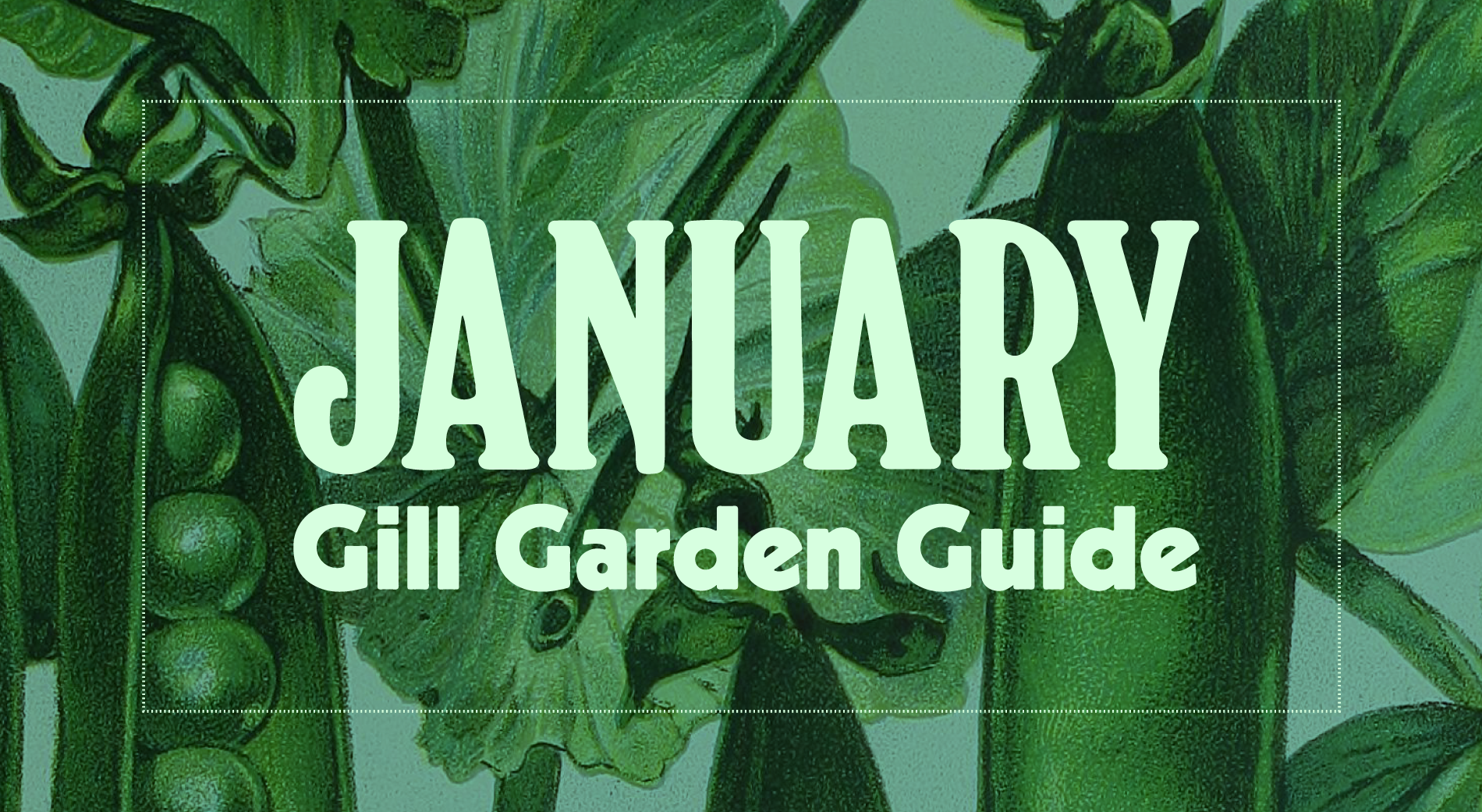
What To Plant
All hardy trees, shrubs, vines, fruit trees, and roses can be planted now. Even citrus trees can be planted now, but they're best in large pots in case we get a freeze.
Vegetable Seeds
Beets, broccoli, cabbage, carrots, Swiss chard, collards, lettuce, mustard, radish, spinach and turnips.
Start pepper and tomato seeds indoors to transplant into garden later.
Vegetable Transplants
Broccoli, cabbage, cauliflower, onion sets, seed potatoes, and spinach.
Tomato transplants can be nurtured in pots now and set in the garden in February.
Use Nature's Blend compost to prepare the garden soil and frost blankets to protect tender veggies from cold nights.
Flower Seeds
Petunias, alyssum, carnations, larkspur, nasturtium, poppy, dusty miller, stock, calendulas and bluebonnets.
Flower Transplant
Pansies, petunias, alyssum, dianthus, snapdragons, and violas, flowering cabbage & kale.
Read: Flowering Cabbage & Kale - Another Winter Treasure
Houseplants
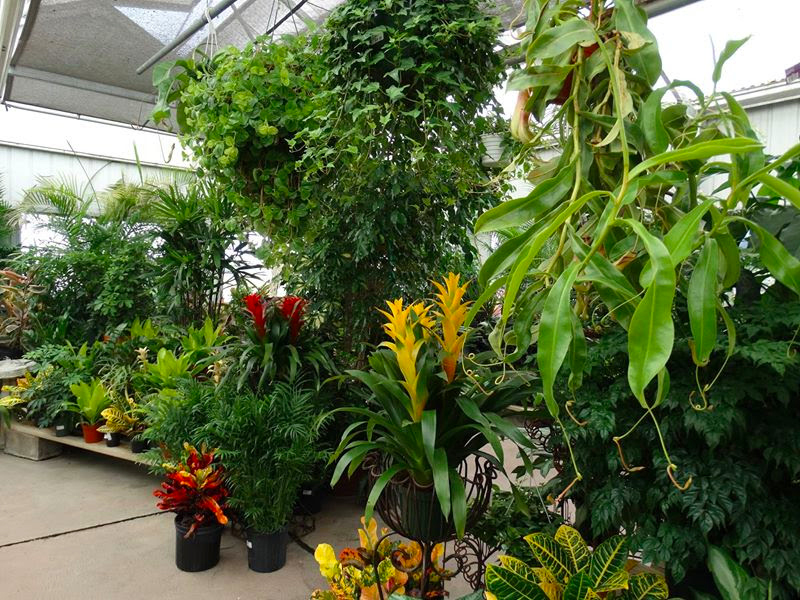
Give your indoor plants a checkup. Look over the foliage, remove any old or dead leaves to freshen their look and keep them healthy.
Be sure to set your plants in the proper light indoors but watch that the heater and/or AC vents do not blow directly on them. Windows provide good natural light - open blinds and curtains during the day.
Read: Indoor Gardening: EZ as a ZZ!
Water when needed, but plants will not drink as much during Winter months. Remember you can add more water, but hard to take out!
Fertilize houseplants organically with ½ strength Hasta Gro.
If your plants look unhappy, they might need re-potting. Be sure to use a good all-purpose potting mix.
Fertilize
Established Citrus Trees
Fertilize organically with Medina Growin Green, Citrus Tone, or Hasta Gro.
Cool Weather Vegetables
Fertilize organically with Medina Growin Green, Hasta Gro, or Plant Tone.
Cool Weather Annuals
Fertilize organically with Medina Growin Green, Maestro Rose Glo, or Plant Tone; or a water-soluble fertilizer like Hasta Gro.
Do not fertilize tropicals in Janurary. They need to rest.
Watch Out For
Scale Insects
Watch for scale insects on hardy trees and shrubs. Spray with Neem Oil or Dormant Oil spray
Read: Organic Gardening 101 - What's Buggin Ya?
Fungal Disease on Roses (like Black Spot)
We almost always see fungus on roses this time of year, but it can be knocked out with Fungonil multi-purpose fungicide or BioAdvance 3 in 1.
Lawn Fungus
This can be a major problem after long periods of wet, cool weather. There are 2 major lawn fungus – Take All Patch and Brown Patch.
Treat Take All Patch organically with Natures’ Blend Organic Compost or peat moss; or use conventional Fertilome Systemic Lawn Fungicide or Scotts Disease Ex.
Treat Brown Patch organically with horticultural corn meal or Nature’s Blend compost, or conventionally with F-Stop Fungus Granules.
Read: Protect Your Lawn: Recent Take All Root Rot Sightings (TARR)
Wait to Prune!
We may be tempted to prune wintery-looking perennials, but we should wait! Pruning signals to the plant that it's time to start putting on new growth, which we don't want just yet. Also, more foliage = more freeze protection.
Fruit Trees
You can prune peaches, plums, and figs lightly to shape. Do not prune citrus.
Hardy Dormant Trees
You can prune oak, mesquite, cedar elm, & crape myrtle. Do not top trees! Prune from the bottom up.
When or if temperatures dip below freezing:
Move tropical potted plants inside or group them together in a protected area so they may be easily covered.
Mulch and water newly planted trees and shrubs well; water tropicals and potted plants.
Cover tropicals and tender plants with frost blankets (which we sell), sheets, household blankets or plastic (Note plastic can burn the outer foliage it is touching).
Bring fabric all the way to the ground allowing heat from the soil to be trapped around the plant.
Uncover all plants as temperatures rise to prevent the foliage from scorching.
Read: Some tips on preparing for a freeze in last week's "Freeze Alert"
Lawn Care
Weed Control
Spot treat existing weeds growing now with natural horticultural vinegar or Captain Jack's Deadweed Brew. Both will burn any foliage so take care to not spray your plants or lawn.
Prevent weeds with Hi Yield Weed & Grass Stopper or Weed Beater Complete
Bare Spots & Brown Lawns
You can overseed your lawn now with winter rye grass seed (or fill bare spots with this seed) at the rate of 1 lb. per 100 sq.ft. We have it in 10 to 50 lb. bags.
Do not think about fertilizing until your lawn begins actively growing. Generally this is around early March.
Note: You cannot apply both winter rye and pre-emergent weed control in the same lawn. The seed will not sprout.
Read: Why Won't My Weed Killer Work?, Our Secret Ingredient for a Happy Lawn
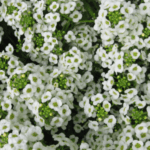
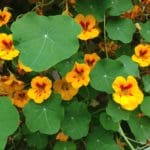
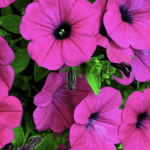
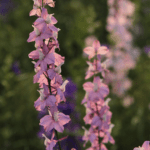
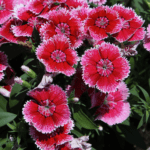
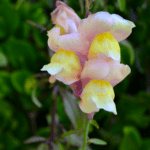
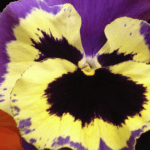






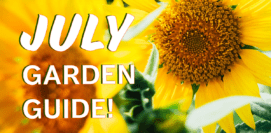


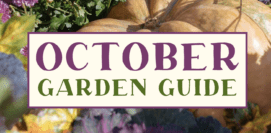




Sara Ryan says
You all planted some Cinco De Mayo roses for us last summer. Do they need to be pruned, as well as our knockout roses?
Jesse says
Hi Sara – if they are blooming right now and look good, then enjoy them now and wait to prune. Once they are starting to look weathered or leggy/long, you can go ahead and cut them back about 2/3 and fertilize with organic Rose Glo.
Dianna says
When are my peggy martin roses supposed to bloom? They bloomed for a very short time after we purchased them in April/May last year from you. Still not blooming
Jesse says
Hi Diana – you should start seeing some buds now or very soon, then blooms in Feb.
Debbie Goodman says
How much are your oleander right now? Is it alright to plant them now?
James Gill says
Yes its fine to plant oleanders now. We do not currently have many in stock, but if you have interest in a particular variety and quantity, ask us if we can get them.
Janice Furch says
When should pulmeria be pruned?
James Gill says
Any time in the next 3 weeks would be good.
Linda Frost says
It didn’t happen in previous years but I’m growing a bumper crop of thistle this spring. How to control?
James Gill says
You can pull them after a rain or thorough watering, or just keep mowed short so they cannot flower, or treat with a broadleaf weedkiller. If you want to spray them, come in and we can fix you up. You can limit this problem next year by applying a pre-emergent this fall, in October. We can help you with that too.
Sue says
My knockout roses are blooming. Should I still cut them back?
james gill says
Yes you should, I like to do that pruning last week of January. As temperatures warm more, vigorous growth will start, and we prefer to do our major pruning before that growth spurt.
David Moore says
Do you guys have any plants that will grow indoor in an office with no windows? I need some plants and would like to know which ones I could buy.
james gill says
All plants require light, but artificial light is adequate for some varieties. Some plants to consider would be pothos ivy, sansevieria, and dracena marginata. Come by and ask about low light indoor plants.
Ruth Baltz says
Do you sell freeze covers, and how much are they? What are the temperatures they can protect the plants to?
james gill says
Hey Chet, sorry but comments were disabled last year, and just showed up now. Keep your poinsettia lightly moist, never saturated and standing in water. Brighter light will hold leaves and color better than a dark place away from a window.
james gill says
And Ruth, we do sell frost blankets, 10×12 is $16.99. They provide approximately 5 degrees of protection, but that is partly dependent on wind speed.
DONNA LINNANE says
Excellent information – thank you!
Chet Freeman says
Any tips on extending the lifes of poinsettias?
james gill says
Hey Chet, sorry but comments were disabled last year, and just showed up now. Keep your poinsettia lightly moist, never saturated and standing in water. Brighter light will hold leaves and color better than a dark place away from a window.